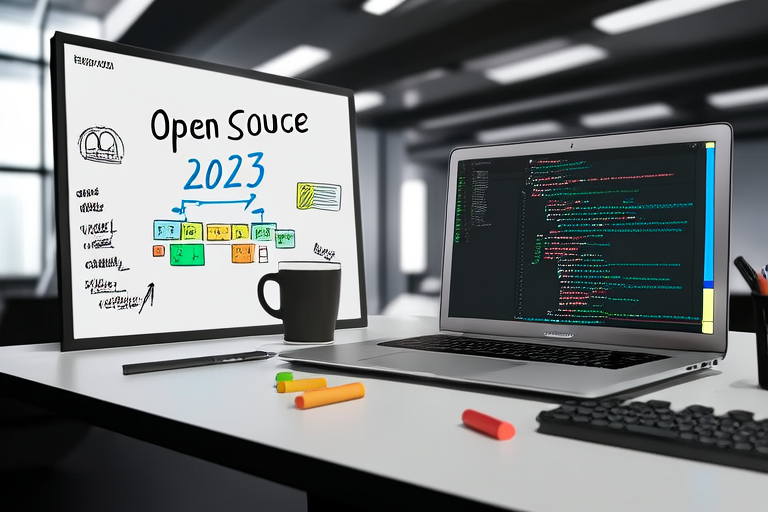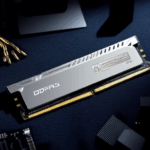“`html
Top 5 Open Source Projects You Should Explore in 2023
Introduction
The world of software development has been significantly shaped by open source projects. These collaborative efforts allow developers to contribute, learn, and innovate freely. In 2023, the landscape of open source continues to evolve, offering new tools and platforms that promise to revolutionize various industries.
Exploring open source projects is more important than ever. They provide an excellent opportunity for beginners to learn and grow, while also offering seasoned developers a chance to stay ahead of the curve. The diversity and impact of open source contributions span across multiple fields, from artificial intelligence to cloud computing, making it essential for anyone interested in technology to keep up with the latest trends.
Project 1: TensorFlow
Overview: TensorFlow is an open-source machine learning framework developed by Google. It offers a comprehensive ecosystem of tools, libraries, and community resources that enable developers to build and deploy machine learning models efficiently.
Key Features and Functionalities: TensorFlow supports a wide range of machine learning tasks, including deep learning, natural language processing, and computer vision. Its flexibility allows users to choose between high-level APIs like Keras and low-level APIs for more control over model building.
Relevance and Potential Impact in 2023: As AI continues to permeate various sectors, TensorFlow remains a cornerstone for developers looking to implement machine learning solutions. Its robust support for distributed training and deployment makes it particularly valuable for large-scale applications.
Notable Updates or Recent Developments: TensorFlow 2.10 introduced significant improvements in performance and usability, including enhanced support for mobile and edge devices. Additionally, TensorFlow Lite and TensorFlow Extended (TFX) continue to expand their capabilities, ensuring broader applicability across different domains.
Project 2: Kubernetes
Overview: Kubernetes is an open-source platform designed to automate the deployment, scaling, and management of containerized applications. Originally developed by Google, Kubernetes has become the de facto standard for orchestrating containerized workloads.
Key Features and Functionalities: Kubernetes provides a powerful suite of tools for managing containerized applications at scale. It offers features such as self-healing, load balancing, and automatic scaling, which ensure high availability and reliability.
Relevance and Potential Impact in 2023: With the increasing adoption of cloud-native technologies, Kubernetes plays a crucial role in enabling organizations to harness the full potential of cloud infrastructure. Its ability to manage complex multi-cloud environments positions it as a key player in the future of IT operations.
Notable Updates or Recent Developments: Kubernetes 1.25 introduced several enhancements, including improved support for Windows containers and better integration with service mesh solutions. The ongoing development of Kubernetes ensures that it remains at the forefront of container orchestration.
Project 3: ReactOS
Overview: ReactOS is an open-source operating system designed to be binary-compatible with Windows. It aims to provide a fully functional alternative to Microsoft’s proprietary OS, offering users the familiar interface and functionality without the licensing costs.
Key Features and Functionalities: ReactOS supports a wide range of Windows applications and drivers, making it an attractive option for those seeking a Windows-like experience without the need for a license. It includes a comprehensive set of tools and utilities to enhance user productivity.
Relevance and Potential Impact in 2023: As the demand for open-source alternatives continues to grow, ReactOS offers a viable solution for users looking to reduce dependency on proprietary software. Its compatibility with existing Windows applications makes it particularly appealing for businesses and individuals alike.
Notable Updates or Recent Developments: The ReactOS team has been actively working on improving stability and performance, with recent releases showcasing significant advancements in driver support and application compatibility. Ongoing development efforts aim to bring ReactOS closer to feature parity with modern versions of Windows.
Project 4: GitLab
Overview: GitLab is an integrated DevOps platform that provides a complete set of tools for software development, including version control, issue tracking, continuous integration, and deployment. It is built on top of Git and offers a seamless workflow for teams to collaborate effectively.
Key Features and Functionalities: GitLab’s all-in-one approach simplifies the development process by consolidating various tools into a single platform. Features such as CI/CD pipelines, project management boards, and real-time collaboration make it an ideal choice for agile teams.
Relevance and Potential Impact in 2023: As organizations increasingly adopt DevOps practices, GitLab’s comprehensive suite of tools positions it as a leading platform for streamlining the software development lifecycle. Its focus on automation and collaboration aligns well with the growing emphasis on efficiency and speed in modern development environments.
Notable Updates or Recent Developments: GitLab 15.0 introduced several enhancements, including improved security features and better support for multi-cloud deployments. The ongoing evolution of GitLab ensures that it remains a cutting-edge tool for modern development teams.
Project 5: Apache Kafka
Overview: Apache Kafka is an open-source distributed event streaming platform designed to handle real-time data feeds. It enables high-throughput, fault-tolerant, and scalable message processing, making it ideal for building real-time data pipelines and streaming applications.
Key Features and Functionalities: Kafka provides a robust infrastructure for managing and processing large volumes of data streams. Its ability to handle millions of messages per second makes it suitable for applications requiring real-time analytics and event-driven architectures.
Relevance and Potential Impact in 2023: With the rise of big data and the Internet of Things (IoT), Kafka plays a critical role in enabling organizations to process and analyze vast amounts of real-time data. Its scalability and reliability make it indispensable for businesses looking to leverage real-time insights.
Notable Updates or Recent Developments: Apache Kafka 3.0 introduced several performance improvements and new features, including enhanced security and improved support for cloud-native environments. The continued development of Kafka ensures that it remains a leading platform for real-time data processing.
Conclusion
In conclusion, these five open source projects—TensorFlow, Kubernetes, ReactOS, GitLab, and Apache Kafka—represent some of the most impactful and innovative initiatives in the tech world today. Each project offers unique benefits and opportunities for developers and organizations alike.
We encourage you to explore these projects further and consider contributing to the open source community. By doing so, you not only enhance your skills but also help shape the future of technology. Whether you’re a beginner or an experienced developer, there’s something valuable to gain from diving into these exciting open source projects.
The future of technology will undoubtedly be influenced by the contributions made to these projects. Stay curious, stay engaged, and let’s build the next generation of software together!
“`


